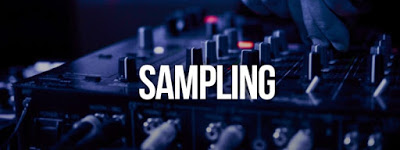
a rap and hip-hop group in Nigeria. In 2006, we used 20 seconds of music
fromAhmed Daura’s ‘Ina Sonki’ in one of our songs, ‘Dambu Dose’. Ahmed
Daura is an established and popular flute player in Nigeria. ‘Ina Sonki’ is one
of the tracks in Ahmed Daura’s 1988 album published by Tarouni Times, a leading
music-publishing company and record label in Kaduna. We since released ‘Dambu
Dose’ and it has been enjoying air play and downloads.
Last week, we received a demand letter from Tarouni Times’ lawyers. They are
demanding 250 million naira from us for allegedly infringing their copyright in
the sound recording of ‘Ina Sonki’. They also demanded a separate 150 million
naira for allegedly infringing on Ahmed Daura’s copyright in the musical
composition of the song.
surprising. This is because we used only 20 seconds of the over 4-minute song.
Only 20 seconds! Our song ‘Dambu Dose’ is original. If we remove Ahmed Daura’s
sound recording and musical composition from the song, it won’t take anything
away from it. Besides, ‘Ina Sonki’ is an old song and Ahmed Daura has since
retired from the game, decades ago. So we ask, are we liable for copyright
infringements as alleged?
is an act of sampling; and sampling a song without the copyright owner’s
permission amounts to copyright infringement, except the sampling is found not
to be substantial or the original song is in the public domain. What amounts to
substantial is as determined by a court of law based on the circumstances of
each case.
Sampling involves taking a portion of a sound recording for use in another
sound recording.
the Nigerian Copyright Act. But according to Wikipedia, sampling is “the act of
taking a portion, or sample, of one sound recording and reusing it as an
instrument or element of a new recording.” So incorporating pre-existing
recordings into a new recording is what sampling is all about. Sampling is a
common activity in music creation but if done wrongly—without due permission
for instance—the user is risking a lawsuit.
The Dambu Guys’ liability for copyright infringement depends on the nature
of copyrighted work allegedly infringed upon.
of ‘Ina Sonki’, The Dambu Guys uses the sound recording only—the sequence of
sound such as beat, melody, or tune—this touches on the record label’s
copyright in the sound recording.
And if the sample contains a part of the musical composition (lyrics) only
without the sequence of sound, The Dambu Guys is liable for infringing the
music publisher’s or songwriter’s copyright in the musical work.
But if in the sample of the song, The Dambu Guys uses a part of the musical
composition (lyrics) along with the sequence of sound, The Dambu Guys has
infringed on both the music publisher’s or songwriter’s copyright in the
musical work andthe record label’s copyright in the sound recording
respectively.
The distinction above is vital because songs typically contain both sound
recording and musical composition, with each one enjoying separate copyright
protection, thus requiring separate licence from the copyright owners.
First, a song comprise musical composition, eligible for copyright protection.
Under section 51 of the Nigerian Copyright Act, a musical work is defined as
any musical composition and includes works composed for musical accompaniment.
In this regard, Ahmed Daura (or the songwriter as the case may be) has
copyright in the musical work, ‘Ina Sonki’. Section 6 of the Nigerian Copyright
Act gives the copyright owner exclusive control over acts such as commercial
distribution of the work, performance of the work, publication of the work,
reproduction of the work, etc. It is immaterial that the song is no longer in
vogue or the artist ‘has retired from the scene’, except the artist is no more
and seventy years has passed the year of artist’s death.

Second, a song may typically comprise sound recording and this recording qualifies
for copyright protection under the Nigerian Copyright Act. Sound recording
means the first fixation of a sequence of sound capable of being perceived
aurally and of being reproduced. Copyright owners of sound recordings do not
enjoy as much exclusive control as copyright owners of musical works do. This
is because the exclusive rights given to copyright owners under section 6 of
the Nigerian Copyright Act only apply to a literary or musical work {section
6(1)(a)}, artistic work {section 6(1)(b)}, and cinematograph film {section
6(1)(a)}. The reason for this is that originality is not a requirement for
copyright protection of sound recordings.
Therefore, as far as sound recording is concerned, only the rights granted
under section 7 of the Nigerian Copyright Act apply. Section 7 expressly states
that copyright in a sound recording is the exclusive right to control two
things: (1) the direct or indirect broadcasting, communication, or reproduction
to the public of the whole or substantial part of the recording either in its
original form or in any form recognizably derived from the original; and (2)
public distribution of copies of the work for commercial purposes. Tarouni
Times, the record label, controls sound recording.
Also, copyright in the sound recording of ‘Ina Sonki’ subsists for 50 years
after the end of the year in which the recording was first published. Since the
recording was published in 1988, the recording is not in the public domain yet.
The question now is this: Does The Dambu Guys’ 20-second sampling of Ahmed
Daura’s ‘Ina Sonki’ amount to substantial part of the recording either in its
original form or in any form recognizably derived from the original?
Ordinarily a 20-second sample of a 4-minute song does not appear substantial, but
this is a question of fact that only a court of law can make a finding on.
Every case is decided on its own merit. For instance, a court may find that the
20-second sample of the song is a major or significant part of the original
song, ‘Ina Sonki’.
of musical composition or the unauthorized use of sound recording in ‘Ina
Sonki’, The Dambu Guys may be liable for damages. Damages may be compensatory
damages for loss of licensing fee. Alternatively, an account of profits
may be awarded. This means payment of a reasonable part of the profits from
‘The Dambu Dose’ as determined by the court.
of a copyrighted song, it’s safer to either get a licence to use the sound
recording or licence to use the musical composition, or both, depending on the
sample.
recording of the song, this is often controlled or owned by the label, in this
case Tarouni Times; while licence to use the composition of the song is
typically controlled or owned by the music publisher or songwriter.
sampling without permission specifically amounts to copyright infringement, get
professional advice from an IP lawyer or law firm.
Lawyers
